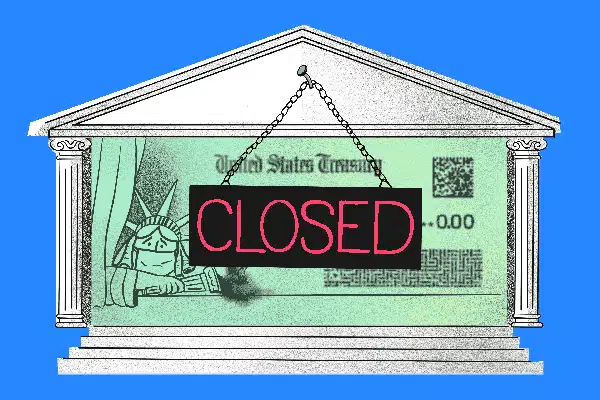Americans Want a Second Stimulus Check to Support the Economy. So What's the Holdup?

As a nation, Americans were pretty responsible with the economic impact payments they got from the CARES Act.
We didn’t really blow the payments on outlandish things. According to a Money poll from April, most people used the cash for bills, groceries and rent/mortgage payments. Others put them into checking and/or savings accounts.
But 60% of those respondents said the money fell short of meeting all their needs, and that’s only become a bigger issue as the coronavirus crisis has worn on. We’re now approaching what experts are calling “the cliff” — when all of the temporary measures the government put in place back in March run out this summer — and things are nowhere near back to normal.
It's safe to say Americans want more stimulus money. But is it likely? Are we going to get a second stimulus check? What’s involved in the decision?
Erica Groshen, a senior extension faculty member at Cornell University’s School of Industrial and Labor Relations, compares the spring shutdowns to a hospital patient who’s been put into a medically induced coma. Back in March, the doctors (in this case, the lawmakers) needed to knock out the patient (the economy) so they could get the infection (the coronavirus) under control.
“We were not trying to wake ourselves up,” Groshen, a former commissioner for the U.S. Bureau of Labor Statistics, says. “We needed to keep ourselves in that coma. However, we did need life support.”
Some life support came in the form of stimulus checks, which Groshen says should actually be classified as disaster relief. That’s because the payments weren’t intended to stimulate the economy — just keep it from dying immediately.
Now that we know a little bit more about what’s happening, the government has to figure out the next step in recovery.
“The question is, do we need more disaster relief? And then, when should we start the stimulus, the actual fiscal policy to try and revive the sleeping economy?” she says. “The answer to the first question is quite clear. We will absolutely need more life support when this runs out, because we’re probably not ready to fully wake the patient up again.”
The form that takes, though, could vary.
The CARES Act stimulus check passed with ease because “it was a big shock, and we wanted to make it simple and give it to everybody,” says Ioana Marinescu, an economist at the University of Pennsylvania. This time around, there’s a lot more drama around both how big the stimulus payments should be and who should get them.
House Democrats have introduced the Health and Economic Recovery Omnibus Emergency Solutions Act, which would give people $1,200 per family member and max out at $6,000 per household. Meanwhile, Kamala Harris, Bernie Sanders and Ed Markey have backed the Monthly Economic Crisis Support Act, which would send $2,000 a month to every individual until the pandemic is over.
Here’s where politics comes in.
The HEROES Act got passed in the House, but it was basically dead on arrival in the Republican-controlled Senate. The White House is reportedly working on its own package, but it won’t be done until July. Mitch McConnell has been generally reticent to even touch the issue; he’s said the next stimulus bill will be the final one.
Something’s gotta give, according to Marinescu. Without a stimulus, there’s a severe threat of economic dislocation. People won’t buy things because they don’t have money. Companies won’t make money, so they will lay workers off. Those people won’t buy things because they don’t have money, and so on.
The best hope may be for some sort of middle ground. There is precedent: During the Great Recession, 124 million households received rebates in 2008. Then, in 2009, many people got tax cuts and credits — not straight-up deposits into their accounts.
To that end, Marinescu has put forth a proposal suggesting people who lost their jobs as a result of the pandemic receive an extra $600 a week for four months, regardless of their unemployment status. She says it’d probably be more palatable to conservatives than cutting checks to everyone, and it would still achieve the intended effects of jump-starting growth.
“This could be a sweet spot of compromise,” Marinescu adds. “We want people to spend money — that’s what helps the economy to move forward. From that perspective, targeting those who lost their jobs could be a good idea.”
Bottom line: People would like to see the government approve additional stimulus checks, but we probably won’t get them anytime soon (if at all).
Remember: This is all just one step in taking the economy out of its coma. Groshen says the U.S. likely also needs to plan for investments in infrastructure, a workforce development system, support for business formation, epidemiology improvements and more. Lingering public health concerns mean it’ll be a gradual process.
“We are beginning to wake our economy up, but we don’t want to wake it up too fast because that’s too dangerous,” she says.
More from Money:
Are Cities the Source of Your Next Stimulus Check?
Here Are the States Getting the Most (and Least) Stimulus Check Money
The IRS Wants Some People to Mail Back Their Stimulus Checks

